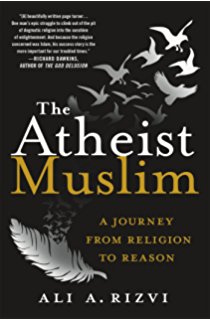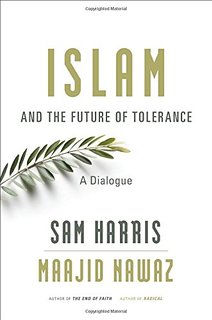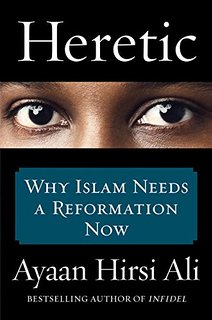Churches in the News
Brandon
Sun, March 11, 2013 - David McConkey
The biggest news is the resignation of Pope Benedict XVI and the election of a new pope. Also in the news is a Supreme Court of Canada case involving religious “hate speech” in Saskatchewan. Plus, here in Manitoba, the anti-bullying legislation and its opposition from religious schools.
The resignation of Pope Benedict XVI shines a new spotlight on the scandal of the abuse and rape of children within the Roman Catholic Church. Accusations of shielding priests who raped children reach right into the Vatican itself.
The scandal also draws attention to outdated Catholic beliefs against the equality of women, birth control, divorce, married priests, and homosexuality. (Pope Benedict has used the word “evil” in reference to homosexuality.)
The Supreme Court of Canada case concerns Saskatchewan human rights laws. A Christian man in that province got in trouble for distributing pamphlets describing homosexuality as “filth.” The Court ruled this to be “hate speech.”
The Manitoba legislation discourages bullying in schools, including religious schools receiving provincial funding. Religious schools object because they want their religious freedom to oppose homosexuality.
These news items reveal the huge difference in viewpoints within the churches themselves. Christian churches in Canada (whether Anglican, Mennonite, Mormon, Roman Catholic, United, and many more) are radically different.
And churches can have very different views on important issues such as abortion, homosexuality, science, and the equality of women.
These great differences cause many people – especially outside churches – to scratch their heads in utter bewilderment.
Just what the heck do churches believe in?
As well as to ask the proverbial question, “What would Jesus say?”
In the meantime, rapid social change is leaving many churches behind the times. Like the rising tide of acceptance of gay marriage in the U.K., the U.S., and other countries.
This change is partly generational: young people are much more accepting of gay marriage than their elders.
There are even conservative and religious voices in favour of gay rights.
Like U.K. Prime Minister David Cameron: “I don’t support gay marriage in spite of being a conservative. I support gay marriage because I am a conservative.”
American writer and blogger Andrew Sullivan draws the same conclusion. Sullivan is a conservative and a Roman Catholic. He supports gay marriage, “not despite being a Catholic, but because I am a Catholic.”
Even religious conservatives are increasingly recognizing the benefits of marriage in society.
And places like Canada that have had gay marriage for years show that gay marriage does not threaten straight marriage.
There is even some evidence that gay marriage can strengthen straight marriage. Some states in the U.S. that introduced gay marriage found that their divorce rate for all marriages dropped. Also, their divorce rate is lower than in states that do not have gay marriage.
So, what about the churches that are still against gay rights?
They are not just on the wrong side of this particular moral issue.
Those churches are also on the wrong side of history.
Then there are the human rights issues recently raised in Saskatchewan and Manitoba.
I think there should be different rules for adults and children.
For adults, there should freedom of speech and of religion. So I disagree with the Supreme Court’s Saskatchewan ruling, which puts restrictions on religious “hate speech.”
Because I think that members of religions – in their church or out on the street – should be able to speak freely. This would include describing homosexuality as “filth,” or “evil,” or in any other hateful way that they believe.
Getting such comments out into the open is the best way to reveal those views for what they are: despicable. As well, citizens openly discussing secular and religious views in the public square helps to nudge progress along.
Children, however, should be in a more protected environment. Children should be protected from bullies. And students should be able to form gay-straight support clubs within schools if they choose.
Students, though, must be vigilant. I have heard that at least one Manitoba religious school plans to allow a gay-straight support club, but then subvert its purpose. School officials will use the club as a way to preach the church belief that to practise homosexuality is a sin.
Where that happens, students must call it out for what it is: hate and bullying by the school administration itself.
So, in conclusion, we should allow the most religious freedom possible in adult society. Let churches preach hate if that happens to be their belief.
But, we should not allow hate and bullying of children in schools. Even in religious schools.
* * * *
See also: Religion and Values in the Public Square
Rights and Religions
Empathy Key to Preventing Bullying
Gay, Good or God?
Citizen Active
QUICK CONTACT:
David McConkey,
Brandon, Manitoba
204-726-9440
Send me an email
My Sites / Interests
- Citizen Active
- Columns
- The Great War
- Live Well, Do Good
- Manitoba History
- Obituary Guide
- Reviews
- The War on Drugs
Some Reviewed Books:
The War on Drugs:
A Failed Experiment

The Atheist Muslim:
A Journey from Religion to Reason

Stranger Than We Can Imagine:
An Alternative History of the 20th Century
Heretic:
Why Islam Needs a Reformation Now
Islam and the Future of Tolerance:
A Dialogue

Extraordinary Canadians:
Nellie McClung

The Greatest Show on Earth:
The Evidence for Evolution



